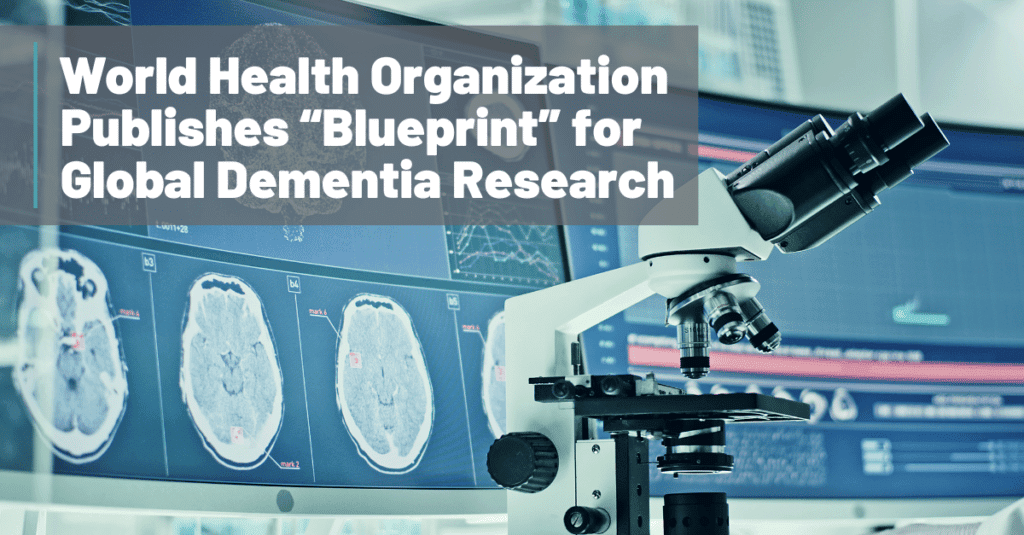World Health Organization Publishes “Blueprint” for Global Dementia Research

The World Health Organization (WHO) has published a blueprint for dementia research to guide stakeholders around the world in making research efforts as efficient, equitable, and impactful as possible.
The blueprint is the first document of its kind for noncommunicable diseases.
“Although dementia is the 7th leading cause of death globally, dementia research accounts for less than 1.5% of total health research output,” said WHO Chief Scientist Dr. Soumya Swaminathan. “Sadly, we are falling behind implementing the global action plan on the public health response to dementia 2017-2025. Addressing dementia comprehensively requires research and innovation to be an integral part of the response.”
The blueprint summarizes the current state of dementia research worldwide, addressing the topic areas of epidemiology and economics, disease mechanisms and models, diagnosis, drug development and clinical trials, care and support, and risk reduction.
The document also identifies gaps in current dementia research and suggests ways the global community can address them. For example, the WHO found a lack of intervention methods for dementia that accurately reflect the world’s diverse cultural and socioeconomic backgrounds. To fix this, the WHO recommended increased international collaboration and research designs that better represent the global population, including currently underrepresented groups.
“We can achieve progress in dementia research by strengthening and monitoring the drivers of research highlighted in the Blueprint so that they become the norm for good research practice,” said Dr. Ren Minghui, WHO’s Assistant Director General for Universal Health Coverage/Communicable & Noncommunicable Diseases.
Are you interested in getting involved in dementia research? People with an FTD diagnosis, family members, and care partners can sign up for the FTD Disorders Registry to share their lived experience with FTD with researchers and connect with opportunities to take part in clinical trials.
By Category
Our Newsletters
Stay Informed
Sign up now and stay on top of the latest with our newsletter, event alerts, and more…
